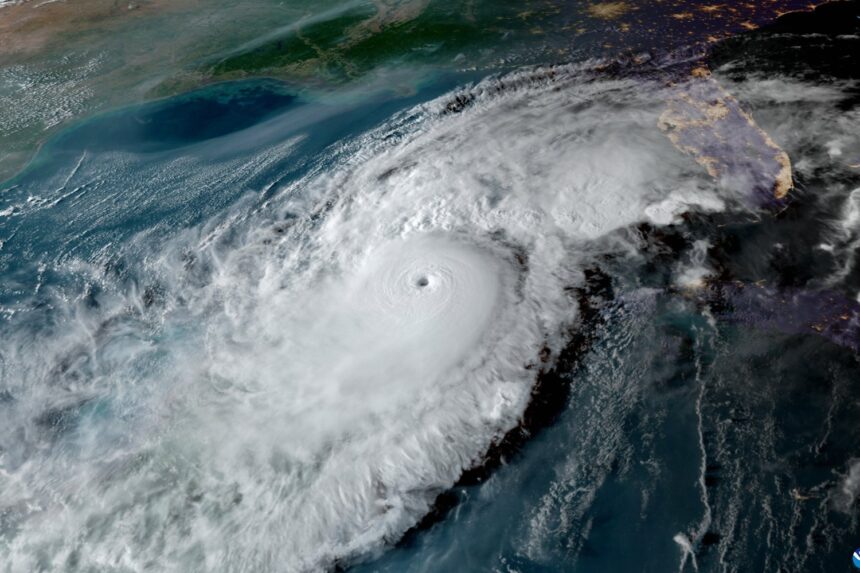In a stunning reversal, the Pentagon said it will uphold a longstanding program that supplies critical hurricane data to federal forecasters—just days before it was set to end. The move follows outcry from meteorologists and public officials blindsided by the planned cancellation at the start of hurricane season.
In June, the Navy’s Fleet Numerical Meteorology and Oceanography Center (FNMOC) announced it was shutting down the Defense Meteorological Satellite Program by Thursday, July 31. DMSP weather satellites are owned by the Department of Defense (DoD) and have provided storm data to the National Oceanic and Atmospheric Administration (NOAA) since the 1960s. The announcement sparked outrage among weather officials preparing for an active hurricane season, which had only just begun. Then, on Wednesday, July 30, the Navy told ABC News that it will keep the program going for another year.
“After feedback from government partners, officials found a way to meet modernization goals while keeping the data flowing until the sensor fails or the program formally ends in September 2026,” the Navy stated. NOAA confirmed the change in a statement emailed to Politico: “There will be no interruption to DMSP data delivery and NOAA will continue to have access to data from DMSP for the duration of the Program’s life span.”
Many storm trackers are likely breathing a sigh of relief. Although NOAA has publicly maintained that cancelling the DMSP would not impact the quality of hurricane forecasting, scientists inside and outside of the U.S. government told The Guardian it would be a significant loss.
“Before these types of satellites were present, there would often be situations where you’d wake up in the morning and have a big surprise about what the hurricane looked like,” Allison Wing, a hurricane researcher at Florida State University whose work depends on the program, told the publication in June. “Given increases in hurricane intensity and increasing prevalence towards rapid intensification in recent years, it’s not a good time to have less information.”
DMSP weather satellites are designed to support military operations, but meteorologists have used their data for general weather prediction and storm tracking for more than 50 years. Equipped with a powerful instrument called the Special Sensor Microwave Image Sounder, or SSMIS, these satellites capture microwave imagery of hurricanes—essentially 3D X-rays. This allows forecasters to see the interior structures of storms.
This information is incredibly valuable. Being able to observe a hurricane’s eye and eyewall—a ring of tall thunderstorms that surrounds the eye and produces heavy rains and strong winds—tells meteorologists whether the storm is strengthening or weakening. That means they can catch major changes like rapid intensification hours before other tracking technologies detect them. Rapid intensification can be deadly—it drastically reduces the time available for communities to prepare and evacuate. Spotting it early can significantly reduce the number of injuries and fatalities.
The Pentagon’s decision marks a rare win for extreme weather preparedness under President Donald Trump. Over the last seven months, the administration has gutted NOAA’s staff, proposed major cuts to its funding, and significantly reduced its research and data-sharing capabilities. This has unfolded against a backdrop of increasingly aggressive attacks on U.S. climate policy, which will undoubtedly worsen extreme weather. For now, at least, forecasters get to keep one of their sharpest tools.
Read the full article here












